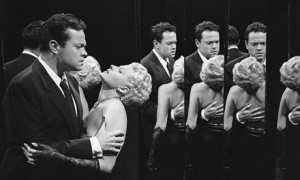Posted: October 25th, 2013 | No Comments »
I’m afraid I don’t know much (anything really) about the German painter and writer Max Dauthendey (1867-1918). However an anecdote (to follow) about him made me laugh the other day and if anyone can tell me anything about his writing I’d be interested. Dauthendey was a major traveller and in 1905-1906 spent time in Asia, including in China. From that period came Lingam: Zwölf asiatische Novellen (Lingam: Twelve Asian Novellas) published in 1909. Apparently it’s little read nowadays but might be interesting – perhaps a little spicy (lingam is a fertility symbol) – if anyone can provide any details? – much appreciated.
Anyway – the anecdote. During the First World War Dauthendey was travelling in the East again and found himself in the Dutch East Indies (Indonesia these days) – as Holland was neutral in WW1, so were their colonies in Asia. Dauthendey appears to have been quite inspired by Java and wrote at least one book about the place – Erlebnisse auf Java.
So, as it’s the war he’s marooned in Java and can’t get back to Germany. Meanwhile a British born woman, Nellie Fuchs, is attempting to get the Germans to release her husband Carl, a world renowned cellist. Out of the blue the Germans offer to send Carl to Britain if London would guarantee the safe passage of Dauthendey home from Java. Fuchs, a major cellist (German born but married to an English citizen) admired by, and good friends with, Sir Edward Elgar in exchange for a minor German poet – a good deal surely. But the British didn’t go for it and the Foreign Office didn’t much like Fuchs as he was German-born, whoever he’d married and whoever admired him. Still, the British needed to check out who this Dauthendey the Germans seemed to care about so much was exactly. A locally based diplomat was sent to Java find out about this Duthendey character and duly reported back:
“Duthendey is in Java and is 58. He is accused of being a poet but may be innocent.”
Duthendey was left marooned in Java and died there in the city of Malang in 1918; Fuchs didn’t get back to Britain, and his wife Nellie, till after the armistice in 1919.
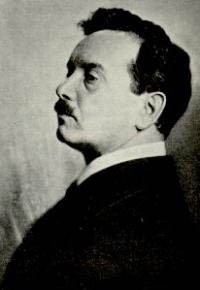 Dauthendey
Dauthendey
Posted: October 24th, 2013 | No Comments »
Given the recent reissue of Lao She’s Mr Ma and Son by Penguin China I’m just giving a quick plug to the best companion read, Anne Witchard’s Lao She in London (the first in the Royal Asiatic Society China’s “China Monograph” series) to that great novel of 1920s London by China’s foremost modernist writer. And it just happens to have got a great review in the Literary London Journal and also to be on special offer at Amazon.
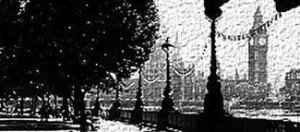
Read the Literary London Journal review here
Buy the book at a rather pleasing discount here
Buy Mr Ma and Son here 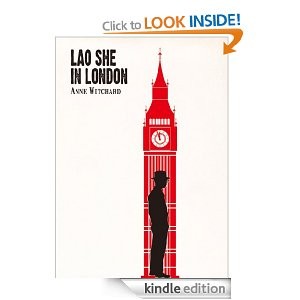
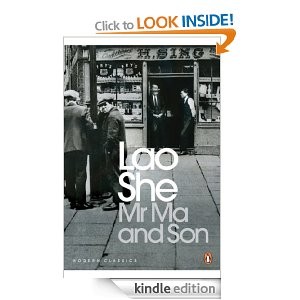
Posted: October 24th, 2013 | No Comments »
I’ll be talking to Amy Tan about her new Shanghai-based novel The Valley of Amazement at Asia House on November 28th…..more details here

Amy Tan – The Valley of Amazement
28 Nov 2013 – 12.30 – 14.00
£15Tickets, £10Friends, £12Concessions
Book online here
Join us for another event in our Lunch and Literature series.  Amy Tan, renowned author of The Joy Luck Club, will discuss her new novel that spans fifty years and two continents. The Valley of Amazement resurrects lost worlds, from the collapse of China’s imperial dynasty to the inner workings of courtesan houses and the lives of foreigners living in Shanghai’s International Settlement. It is also a deeply evocative narrative of family secrets, the legacy of trauma, and the profound connections between mothers and daughters, which the author has so expertly mapped in her previous novels.
Amy Tan’s other works include The Kitchen God’s Wife, The Hundred Secret Senses and The Bonesetter’s Daughter, all New York Times bestsellers. She will be in conversation with Paul French, who lived in China for more than 10 years. He is a widely published analyst and commentator on China; his books include a history of North Korea, a biography of Shanghai adman and adventurer Carl Crow, a history of foreign correspondents in China and, most recently, the bestselling Midnight in Peking.    Â
Ticket price includes a light buffet lunch
12:30Â Light Buffet Lunch
13.00 Discussion
Members priority booking 2 September – 22 Sepetember
General booking opens 23 September
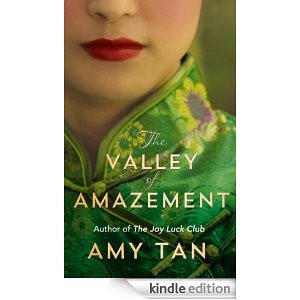
Posted: October 23rd, 2013 | No Comments »
Kenneth Weisbrode’s Churchill and the King is an interesting monograph on the wartime relationship between Winnie and George VI. Included in it is a new FDR anecdote I didn’t know, taken apparently from Sarah Bradford’s 1990 book The Reluctant King (also about George VI). Apparently, as FDR lay dying in April 1945 he was found staring into space, absorbed in his own thoughts and repeated three times, “If Churchill insists on Hong Kong. I will have to take it to the King.”
Presumably this refers to the fact that of the Big 3 – Churchill, FDR and Stalin – Churchill was the only who could technically be countermanded and overruled at the peace conferences towards the end of the war. Stalin was in complete control as a dictator, FDR as president of a republic, but Churchill was technically subject to his monarch. As Weisbrode shows, no public conflict ever did occur between Prime Minister and King over any of the big decisions but it would have been possible for FDR to appeal to George VI if he was serious about overturning a position of Churchill’s. This is is interesting as FDR’s interest, and minor obsession some say, with the post-war fate of Hong Kong is little known or commented upon.
The fact was that the Americans had wanted Britain to surrender the colony after it was liberated from Japan (which eventually happened in August 1945, several months after FDR’s death). FDR had suggested an international free port, similar to Trieste, an idea London was obviously loath to entertain. In the end the British colonial secretary Franklin Gimson contacted London the moment he was released from Stanley Camp, accepted the post of lieutenant governor and swiftly reasserted British rule. Roosevelt’s plan died a quiet death and Hong Kong returned to being a British Crown Colony until 1997.
While I knew this story I have to say I hadn’t heard the story that FDR was so concerned over the re-establishment of British colonial power in Hong Kong that it was obviously on his mind right up until the end of his life and that he had, seemingly, considered taking the ultimate step of going over Churchill’s head to George VI with the issue. One of the great “what if’s?” of Hong Kong/Chinese history just became a bit more “what if”….
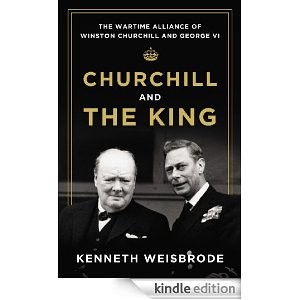
Posted: October 22nd, 2013 | No Comments »
After we successfully launched the RAS Shanghai-Hong Kong University Press China Monographs series last year with Anne Witchard’s Lao She in London (winner of a best cover award with the American Association of University Presses) and Lindsay Shen’s Knowledge is Pleasure: Florence Ayscough in Shanghai it’s time to gear up for another two titles now. And we’ve got two great ones for you coming next January (Mu Shiying) and spring (Happy Hsiungs)….so a little sneak previewing….
Mu Shiying: China’s Lost Modernist – New Translations and an Appreciation by Andrew Field
Shanghai’s “literary cometâ€

When the avant-garde writer Mu Shiying was assassinated in 1940 on a Shanghai street, China lost one of its greatest modernist writers while Shanghai lost its most detailed chronicler of the city’s Jazz-Age nightlife. But Mu’s highly original stream-of-consciousness approach to short story writing deserves to be re-examined and re-read. As Andrew Field argues, Mu Shiying advanced modern Chinese writing beyond the vernacular expression of May 4th giants Lu Xun and Lao She to even more starkly reveal the alienation of the cosmopolitan-capitalist city of Shanghai trapped between the forces of civilisation and barbarism in the 1930s.
Mu Shiying: China’s Lost Modernist includes translations of six short stories, four of which have not appeared before in English. Each story focuses on Mu’s key obsessions: the pleasurable yet anxiety-ridden social and sexual relationships in the modern city, and the decadent maelstrom of consumption and leisure in Shanghai that was epitomized by the dance hall and the nightclub. By way of introduction, Field situates Mu’s work within the transnational and hedonistic environment of inter-war Shanghai, the city’s entertainment economy as well as his place within the wider arena of Jazz Age literature and art from Berlin, Paris, Tokyo, and New York. While Mu is a key literary modernist in China, this study places his writings squarely within the framework of Shanghai’s social and cultural nightscapes.
Andrew David Field is Director of Shanghai Programs for Boston University. Â He is the author of Shanghai’s Dancing World: Â Cabaret Culture and Urban Politics, 1919-1954 (Chinese University Press, 2010).
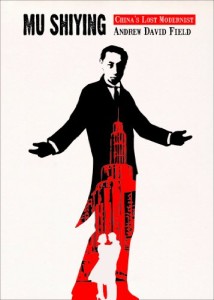
The Happy Hsiungs: Performing China and the Struggle for Modernity by Diana Yeh
‘Try Something Different. Something Really Chinese’
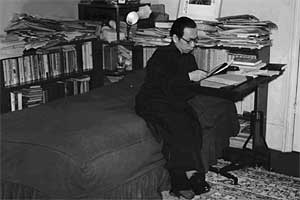
The Happy Hsiungs recovers the lost histories of Shih-I and Dymia Hsiung, two once highly visible, but now largely forgotten Chinese writers in Britain, who sought to represent China and Chineseness to the rest of the world. Shih-I shot to worldwide fame with his play Lady Precious Stream in the 1930s and became known as the first ever Chinese stage director to work in the West End and on Broadway. Dymia was the first Chinese woman in Britain to publish a fictional autobiography in English in the 1950s. Through exhaustive research and fieldwork among surviving family members and friends, Diana Yeh traces the Hsiungs’ lives from their childhood in Qing dynasty China and youth amid the radical May 4th era to Britain and the USA, where they became highly celebrated figures, rubbing shoulders with George Bernard Shaw, James M. Barrie, H.G. Wells, Pearl Buck, Lin Yu Tang, Anna May Wong and Paul Robeson among others.
In recounting the Hsiungs’ rise to fame, Yeh focuses on the challenges they faced in becoming accepted as modern subjects, as knowledge of China and the Chinese was persistently framed by colonialist legacies and Orientalist stereotyping, which often determined how their works were shaped and understood. Yet, The Happy Hsiungs also shows how Shih-I and Dymia, in negotiating acceptance, ‘performed’ not only specific forms of Chineseness but identities that conformed to modern ideals of class, gender and sexuality, defined by the western middle-class nuclear family. Though fêted as ‘The Happy Hsiungs’, their lives ultimately highlight a bitter struggle in attempts to become modern.
Diana Yeh lectures at Birkbeck College, University of London and at the University of East London. Formerly Sociological Review Fellow, she is currently a Research Fellow on the AHRC-funded project, China in Britain: Myths and Realities. She has published on race, ethnicity, diaspora, migration and culture, and has presented her research on BBC Radio Four, and at institutions such as the Royal Geographical Society, the Wellcome Trust, National Portrait Gallery and Tate Britain.
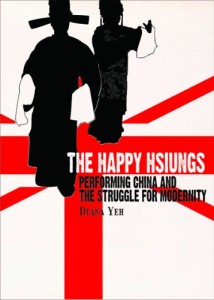
Posted: October 21st, 2013 | 2 Comments »
Timothy Brook is far and away one of the most engaging writers on China (his Vermeer’s Hat was a brilliant read) and no reason to doubt Mr Selden’s Map of China will be any disappointment…..

A fascinating work of history, biography, cartography, and literary mystery, Mr Selden’s Map of China unlocks the secrets behind a recently discovered map of China like no other of its time.
In 1659, a vast and unusual map of China arrived in the Bodleian Library, Oxford. It was bequeathed by John Selden, a London business lawyer, political activist, former convict, MP, and the city’s first Orientalist scholar. Largely ignored, it remained in the bowels of the library, until called up by an inquisitive reader. When Timothy Brook saw it in 2009, he realized that the Selden Map was “a puzzle that had to be solvedâ€: an exceptional artefact so unsettlingly modern-looking it could almost be a forgery. But it was genuine, and what it has to tell us is astonishing. It shows China, not cut off from the world, but a participant in the embryonic networks of global trade that fuelled the rise of Europe — and now power China’s ascent. And it raises as many question as it answers: How did John Selden acquire it? Where did it come from? Who re-imagined the world in this way and, most importantly, what can it tell us about the world at that time?
Like a cartographic detective, award-winning author and historian Timothy Brook has provided answers. From the Gobi Desert to the Philippines, from Java to Tibet, and into China itself, Brook uses the map to tease out the varied elements that defined this crucial period in China’s history.
Posted: October 20th, 2013 | 2 Comments »
I’ve blogged a few times (here and here) about the recurring motif of Chinese lanterns in western literature – Trilby, The Man Who Was Thursday, Women in Love, Mr Norris Changes Trains etc. Of course if writers were putting lanterns into their work then they must have seen them up? My thanks to Anne Witchard of Lao She in London (now a super bargain on Kindle at GBP5.50) and Translating China for information on the old Hotel Metropole in London. In the 1920s the Metropole, down near Whitehall, was one swank place to go dancing all night in the ballroom decorated with hand painted Chinese lanterns. The hotel fell out of favour, as did the general area. But these days it’s up again with a bunch of new hotels opening in the Whitehall area and the Metropole now back again as the super deluxe Corinthia. But here, from 1926, is a host of flappers and swells living it up at the Metropole, complete with Chinese lanterns…..
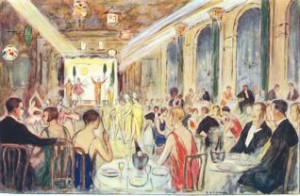
Posted: October 19th, 2013 | No Comments »
An apparently excellent restored print of the Orson Welles movie Lady From Shanghai was shown recently as part of the London Film Festival. Ever since it’s release people have scratched their heads as to why Shanghai? The place is never mentioned in the movie. Well, I blogged about that a few years ago about this – The Lady From Shanghai…Who Wasn’t…But Was… – and the mentions of Chefoo and Macao in the movie that may ring a little hollow on modern ears. There’s also an interesting article on the back story of the film and the odd time that was had by all filming it from The Guardian.
